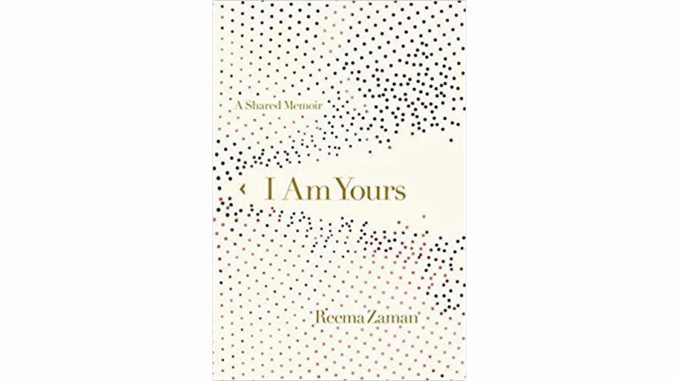
‘We do language,’ part of Toni Morrison’s Nobel Prize for Literature acceptance speech will constantly run through your mind as you read Reema Zaman’s memoir ‘I Am Yours.’ Zaman begins this book in the present, then proceeds to backtrack to the day of her birth and the disappointment of those who expected more from her intelligent mother. To her professors, Zaman’s mom should have been too progressive to be part of an arranged marriage mindset. But a mother’s choices helped form a family where Reema Zaman seemed to be born under the sign of perseverance where a rickshaw and a sari come to symbolize womanhood. Â
And with that this book centers on Zaman where, we do healing may also be your mantra as you continue reading this first person memoir. Healing of course includes trauma. Zaman sees the crumbling of her parents’ marriage while they are in Bangkok. During her middle school years increasingly becomes a challenging time. Zaman becomes her mother’s voice by debating and not being hysterical with her father. As a result he gives her the silent treatment, over long stretches of time. Thus making the occasions where her mother shows the most bravery is when she fights for their right to choose their own fate are some of the most poignant moments in the book. The spouses of her children, particularly her daughters will not be determined by the mercurial patriarch. From an inquisitive child who is in the safety of her family to a teenager sees the plight of 5-year olds who go to school in what can be kindly called a slum to taking care of babies with cerebral palsy, Zaman takes her readers on a journey where the child within and the actual taking care of children reveals a healing process. Having been born in Bangladesh and raised in several parts of the world including Hawaii and Thailand Zaman sees the unconditional love that children give. In her caring for young children she continues to discover something within herself. As she does this, there is the constant mention of ‘we,’ as if Zaman is talking about a twin self or the child within. A constant reminder to remain empathetic, that we all need to feel a connection. Whether it’s a reference to younger siblings or the little ones being cared for, children in their honesty constantly reinforce the linking of people in every chapter.
And though there are chapters after ‘Freedom’ to be read, the writing grows from a steady stream of a newly opened tap to a strong rainstorm. All thoughtful while simultaneously comforting. Similarly, ‘I Am Yours’ will live inside the reader as there will be a constant reshaping through the lens of personal experience. There are hints of this when Zaman mentions writes Edgar Allen Poe, Ursula K Le Guin and Madeline L’Engle. It is not unsurprising that both Guin’s story and L’Engle’s novel both center around children. In this instance horror and science fiction, just as memoir help explain how the reader feels. Those shared experiences form deep connections.
When you look at the way a person reveals their soul to you, you may consider ‘I Know Why The Caged Bird Sings’ where Maya Angelou gives her reader a place to heal. Memoirs tend to do that both for the reader and the author. Zaman is fully aware of what language can do. It not only reveals our identity, it exposes our heart. Memoirs are special like that.

Leave a Reply